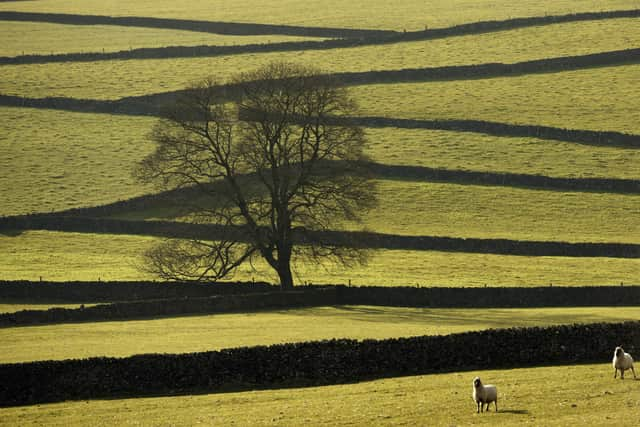New national park: where will national park be, possible locations - including Dorset, Chilterns and Cotswolds
and live on Freeview channel 276
Rishi Sunak has unveiled a plan to establish a new national park in England while focusing on safeguarding urban wildlife havens and preserving trees as part of a nature-centric initiative announced in anticipation of the Cop28 climate summit beginning on Thursday (30 November).
The government package, designed to enhance accessibility to natural spaces, includes the launch of the process to establish a national park in the new year, a proposal first outlined in the 2019 Tory manifesto.
Advertisement
Hide AdAdvertisement
Hide AdIt also includes a competition for a new national forest, and the implementation of 34 new landscape recovery projects spanning England. The plans cover 200,000 hectares of land, which encompass woodlands, rainforests and sustainable food production. Here is everything you need to know about it.
What is a national park?


A national park is a designated area recognised for its natural beauty, unique landscapes and/or its significant cultural heritage.
These areas are protected and managed to conserve their scenic, environmental and cultural values, while also providing opportunities for public enjoyment and understanding of the natural world.
National parks in the UK receive funding from various sources, including government allocations, local authorities, grants, and contributions from organisations and charities.
Advertisement
Hide AdAdvertisement
Hide AdThis funding is used for various purposes, including conservation efforts, visitor management, infrastructure maintenance, education programs, and supporting local communities.
Certain activities within national parks may be restricted or regulated by law to safeguard the environment, such as limitations on development, restrictions on hunting or fishing and measures to control pollution.
The concept of national parks originated with the establishment of the National Parks and Access to the Countryside Act 1949, a pioneering step in creating areas of protected landscapes for public enjoyment, access and conservation.
The first national park to be designated under this act was the Peak District National Park in 1951. Since then, additional parks have been designated across England, Wales and Scotland, and the UK now has 15 in total.
Advertisement
Hide AdAdvertisement
Hide AdSome of the most well-known national parks in the UK include the Lake District National Park, Eryri National Park in Wales (previously known as Snowdonia National Park) and the Cairngorms National Park in Scotland.
Where will the new national park be?
Conservation advisory body Natural England will assess potential locations for the new national park, though the ultimate decision will rest with the Government next year. According to the BBC, Natural England will review a list of potential sites, which may include areas like the Chilterns, the Cotswolds and Dorset.
Environment Secretary Steve Barclay told ITV's Good Morning Britain he would prefer for the park to be near an urban area to optimise public accessibility.
“I think one of the things we’re looking at is perhaps access to national parks and whether it should be nearer to some urban centres, and I was talking to the chief exec of Natural England about this last night,” he said.
Advertisement
Hide AdAdvertisement
Hide Ad“So we’re very open that it’s not that the government is going to decide where this is. There’ll be a process of consultation led by Natural England, working with the government on it, but that’s what we want to use the next year to decide.”
Why isn't everyone happy with the idea?
Some environmentalists have cautiously welcomed the news, as government funding for national parks has declined in real value, leading to service reductions and staff cuts.
Dr. Rose O'Neill, chief executive of the Campaign for National Parks, highlighted a concerning 40% decline in real-term funding for existing parks since 2010, describing them as being "financially throttled".
"Today's investment will go some way to easing the burden in the short term but the next crisis could be just around the corner," she said. Parks nationwide have had to reduce staff numbers and visitor services due to diminishing core grants from the government.
Advertisement
Hide AdAdvertisement
Hide AdThe general secretary of the Prospect trade union, Mike Clancy, took issue with the Government’s nature announcement. “Bold-sounding initiatives can’t hide the true state of our rivers, shorelines and natural landscapes,” he said.
Clancy also hit out at Tory funding cuts to the Department for Environment, Food and Rural Affairs, adding that the department’s budget is expected to be cut by more than £500 million by the end of next year. “Without adequate funding for the guardians of our natural environment, there is little chance the Government’s rhetoric will be able to meet its stated ambition,” he said.
Comment Guidelines
National World encourages reader discussion on our stories. User feedback, insights and back-and-forth exchanges add a rich layer of context to reporting. Please review our Community Guidelines before commenting.
